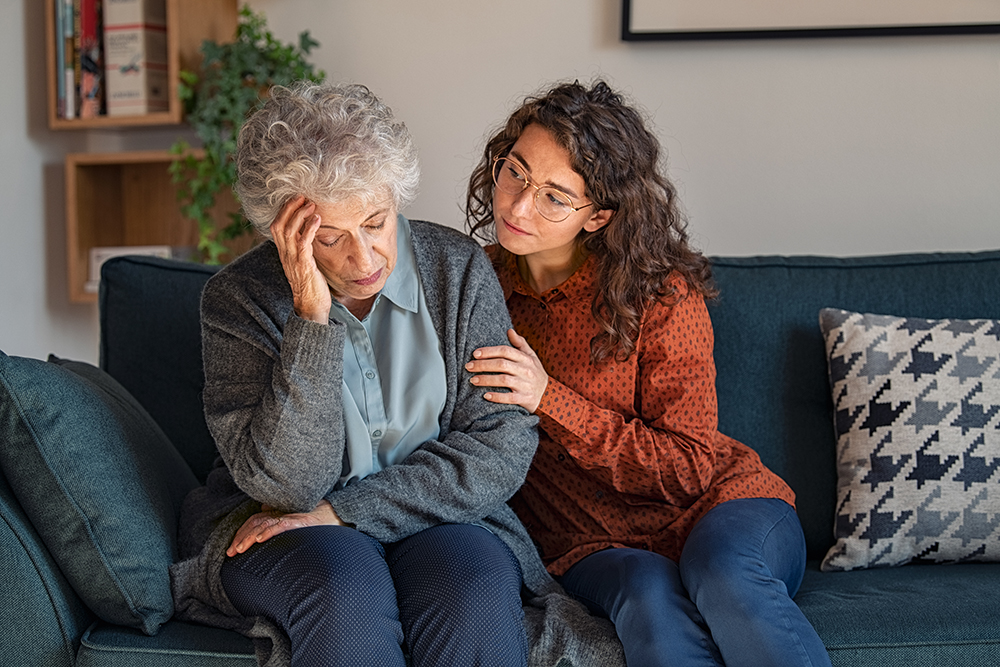November marks Alzheimer’s Awareness Month in the U.S. – a time dedicated to shining a light on a condition that directly and indirectly touches millions of lives. Alzheimer’s disease and other forms of dementia profoundly affect people with these illnesses and the people they love.
The ripple effects of an Alzheimer’s diagnosis can be far-reaching. Family members often find themselves taking on responsibilities they never anticipated, like caregiver, financial manager and health care advocate.
Adjusting to a New Normal in Your Family Dynamic
Alzheimer’s disease can be unpredictable, requiring patience and flexibility from everyone involved. It may take time for you and your family members to agree on who will handle responsibilities such as household chores, grocery shopping and personal care for your loved one.
A family’s emotional center shifts when one of its members receives a dementia diagnosis. This new focus can sometimes lead to neglect or resentment among those who feel ignored or left out. Some family members may withdraw from activities because they cannot handle the stress.
Conversely, this shift can also bring families closer together, fostering a newfound bond as they unite to face the challenges head-on. Amid adversity, there’s potential for families to discover strength and closeness they never knew they had.
Emotional Responses to Alzheimer’s in the Family
In the wake of an Alzheimer’s diagnosis, a whirlwind of emotions can surface – specifically, guilt, grief and anger.
- Guilt can stem from feeling like you’re not doing enough or from the tough decisions you must make, such as choosing to transition a loved one to assisted living.
- Grief may occur due to the changes in the person you knew, the loss of your relationship and the shared future you once envisioned.
- Anger may arise from the stress of caregiving responsibilities, the perceived lack of support from others or even resentment toward the person with Alzheimer’s for the challenges their condition brings.
These emotions are normal and valid, and it’s important to discuss them with a therapist or a health provider who can offer support and coping strategies.
When Coping Becomes Self-Destructive
For some, the strain of caregiving can lead to the search for an escape, often in the form of alcohol or drugs. What may start as a momentary respite can quickly spiral into an addiction, further complicating the ability to provide care and manage your other responsibilities.
Additionally, long-term drinking and drug use will significantly increase your risk of developing Alzheimer’s and other forms of dementia as you grow older.
New Found Life Is Here to Support You
If you rely on alcohol or drugs to get through the day, it can be difficult to stay sober, no matter how motivated or committed you are. That’s because addiction’s chronic, self-perpetuating nature makes you want to continue abusing substances, even when you know you might end up with irreversible brain damage, memory loss, personality changes and other severe health problems.
If you find yourself struggling to cope with the responsibilities and emotional toll of caring for a loved one with Alzheimer’s, seeking relief in drugs and alcohol will only add to the burden. At New Found Life, we understand the complex intersection of caregiving and the risk of developing an addiction. Our compassionate team offers support and holistic treatment to those who find themselves on this challenging path, ensuring you don’t have to face these difficulties alone.
Remember, in a role that often feels isolating, there is help and hope. Reach out to us this Alzheimer’s Awareness Month or any time you need a hand to hold on your journey.

